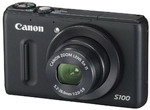Monday, February 20, 2006
GPS Data in Digital Photography: Great Potential
Posted by Jason Dunn in "THOUGHT" @ 09:00 AM
Why do I need a GPS unit for my camera?
Why indeed? Here are my thoughts on the matter. A hardware GPS attachment for your camera allows you to get GPS coordinates into the EXIF data, which would then allow you look at your photos not just by time and date, but by where you were when you took them. That's powerful stuff! This is a relatively new concept that hasn't been explored much (to my knowledge). Imagine a photo viewing program such as Picasa that would have a map of the world showing dots where groups of photos were taken. You could then zoom in on those dots to see a topographical map, such as satellite images, showing the real location where those photos were taken. Zoom in more and over top a topographical image you'd see thumbnail images of your photos. You could easily see where most of your photos were taken. If the satellite images have sufficient resolution, you could see the actual river and the cluster of photographs around it that you took. Imagine looking at your vacation photos on a map instead of based on time.
Take this concept and combine it with a service such as Flickr, and you could overlay photo collections from a vast community of users and explore the world based on geographical location rather than just keywords (oh, look, it's being done already!). Take a Flash-based map constructed of satellite imagery, overlay photos GPS data, and start to have fun. Exploring a map of the world would be far more engaging than typing in keywords. The educational possibilities are also staggering - I think it would engage children in learning geography in a very dynamic way.
GPS data will allow for a whole new way of accessing your memories. It's not limited to people who travel all over the world either - GPS data is fairly granular, so looking at a map you could see a cluster of photos surrounding the house where you grew up but moved out of, and another cluster on the other side of the city where you now live. Maybe there's a local park where many of your photos were taken.
Many pieces of the puzzle still need to come into play - I think camera-integrated Bluetooth is the best way to give the cameras a way of communicating with the GPS unit, most of which are Bluetooth now anyway. The short term solution is for software programs to integrate with online mapping/geography sites and allow for geographical tagging of images in bulk, based on the look-up of an address. So a program such as Microsoft Digital Image Suite 2006 might integrate with Windows Live Local and allow you to enter the approximate location of where you were when you took these photos. The software would then do a mass edit of the EXIF tags for those images. In many instances you wouldn't have the address, but might be able to pick out a general geographical location by clicking on a map.
In short, GPS photo data opens up some wonderful possibilities that have only begun to be explored. There are others working towards solutions, but the big guns of the digital photos industry have yet to wake up to the real possibilities.












